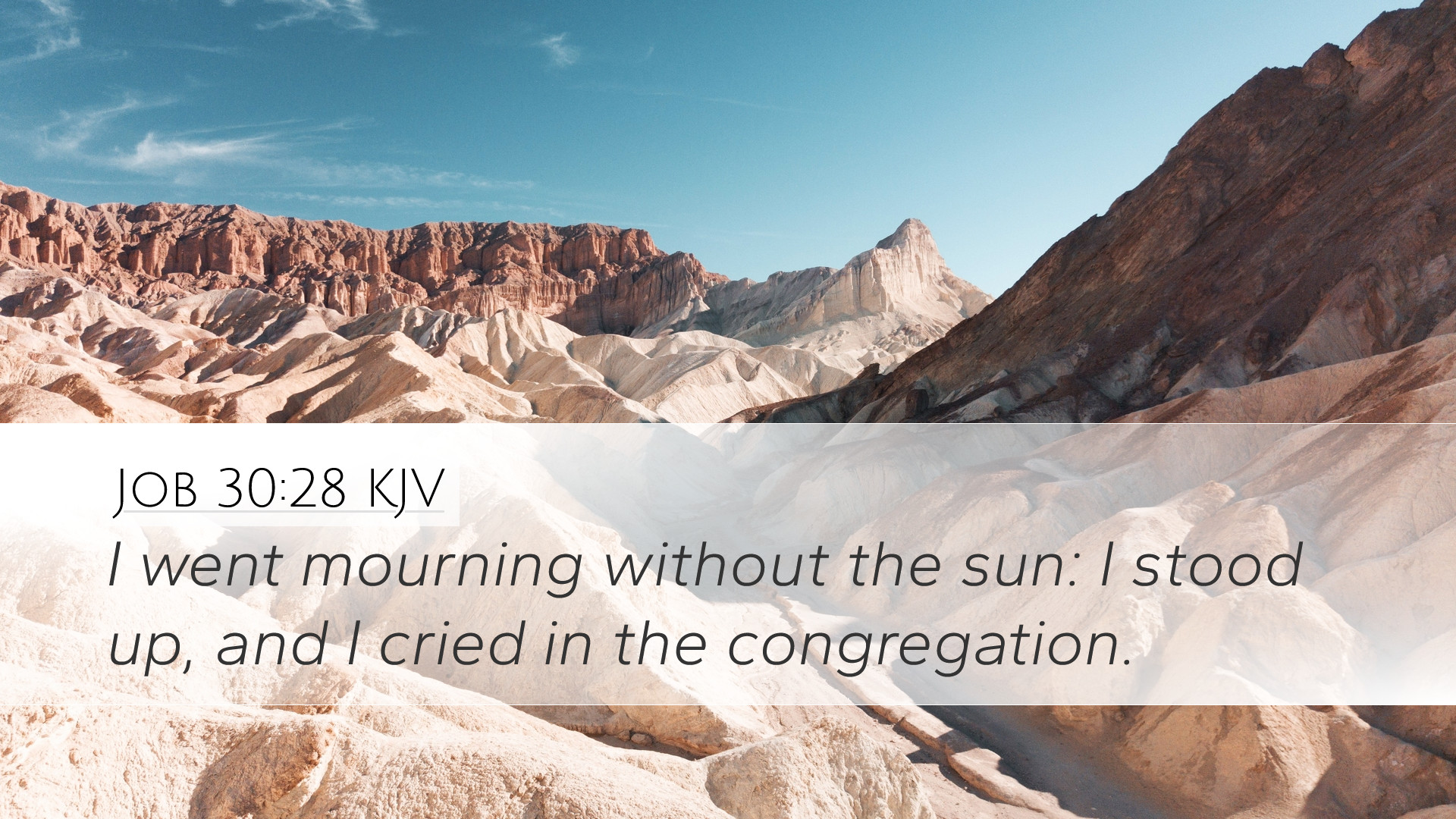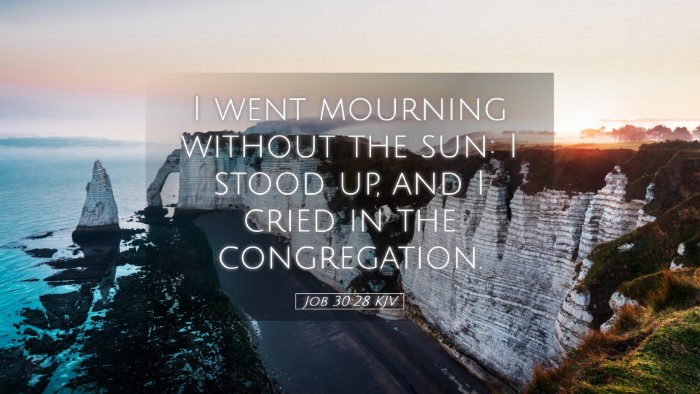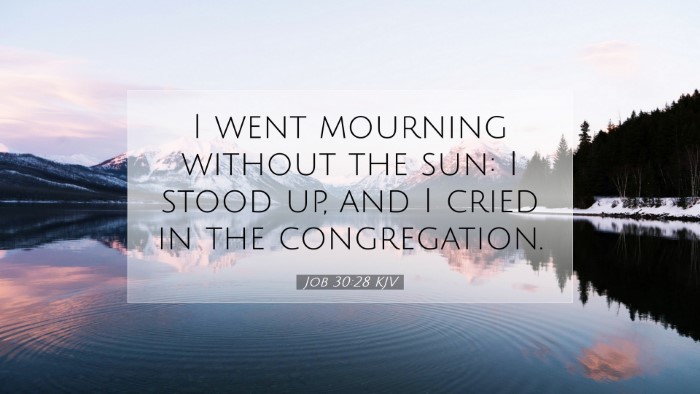Commentary on Job 30:28
Job 30:28 states: "I go mourning without the sun: I stand up, and I cry in the congregation." This verse is situated within one of the most profound expressions of human suffering found in the Book of Job. Here, Job articulates his deep anguish as he laments his loss of hope and the degradation of his previous status.
Contextual Background
To fully understand Job 30:28, one must consider the broader narrative of the Book of Job. The story unfolds the trials of its titular character, Job, a man of immense faith who experiences relentless suffering. After losing his wealth, children, and health, Job laments not only his circumstances but his perception of God and his justice. This chapter represents a pivot point where Job contrasts his former life of prosperity with his current state of pain.
Verse Analysis
Job's statement, "I go mourning without the sun," captures the essence of his despair. The sun, often symbolizing joy, hope, and vitality, is absent in Job's life; his days are filled with sorrow. The lack of sunlight metaphorically reflects the absence of God's favor, leaving Job in darkness.
“I stand up, and I cry in the congregation” speaks to Job's isolation amidst communal suffering. Despite being in the presence of others, Job feels unheard and unseen, exemplifying a physical and emotional void even in social settings. Job's sorrow is profound; he stands as a witness to his own despair, expressing a desperate cry for attention and empathy.
Theological Implications
From a theological perspective, Job's plea raises questions about divine justice and the nature of suffering. Pastors and theologians can draw from this verse to explore the theme of lamentation in the faith journey. The mourning Job experiences invites discussions on how believers can engage with their pain in a way that leads to greater intimacy with God, rather than separation.
Insights from Public Domain Commentaries
-
Matthew Henry:
Henry emphasizes the depth of Job's grief and the silence of God during times of suffering. He suggests that Job's cry reflects a common human experience, where one feels abandoned in their trials. Job’s lament serves as a model for those who mourn, highlighting the importance of expressing one's struggles rather than suppressing them.
-
Albert Barnes:
Barnes notes that Job’s mourning underscores a pivotal element of human existence — the experience of loss. He points out that Job's isolation is compounded by his public mourning, revealing how societal expectations can often amplify personal grief. Barnes encourages readers to acknowledge their pain honestly and vehemently, suggesting that such expressions may ultimately lead to spiritual awakening or reveal deeper truths about one's relationship with God.
-
Adam Clarke:
Clarke posits that Job’s reference to the "congregation" indicates his awareness of social dynamics and communal suffering. He interprets Job’s actions as a search for understanding and solidarity in the midst of desolation. Clarke emphasizes that the presence of God should bring solace, yet Job feels the stark contrast between his past joy and current lament, prompting discussions about the hidden presence of God in times of trials.
Practical Applications
For pastors and leaders, Job 30:28 offers rich teaching material on the importance of acknowledging grief in ministry settings. Here are some practical applications:
- Encouragement of Lament: Just as Job cries out, leaders can create spaces where congregants feel safe to express their struggles and pain without judgment.
- Understanding Isolation: Address the isolating effects of grief. Encourage community members to engage with those who are mourning and offer them empathetic support.
- Facilitating Healing: Encourage honest conversations about feelings of abandonment or sorrow, drawing from Job's experience to support those navigating through similar trials.
- Revisiting Divine Justice: Engage congregants in discussions surrounding the complexities of justice and suffering, illustrating how personal pain can transform into an avenue for spiritual growth.
Conclusion
Job 30:28 encapsulates the tumultuous inner battle faced during periods of suffering. Job's expressive mourning becomes an invitation for deeper reflection on faith amidst despair. The insights drawn from public domain commentaries enhance this understanding, offering a multi-faceted look into one of the most profound struggles faced by humanity — the search for meaning and hope in the absence of the sun. Believers are reminded that mourning, while painful, can lead to profound healing and restoration through God.


